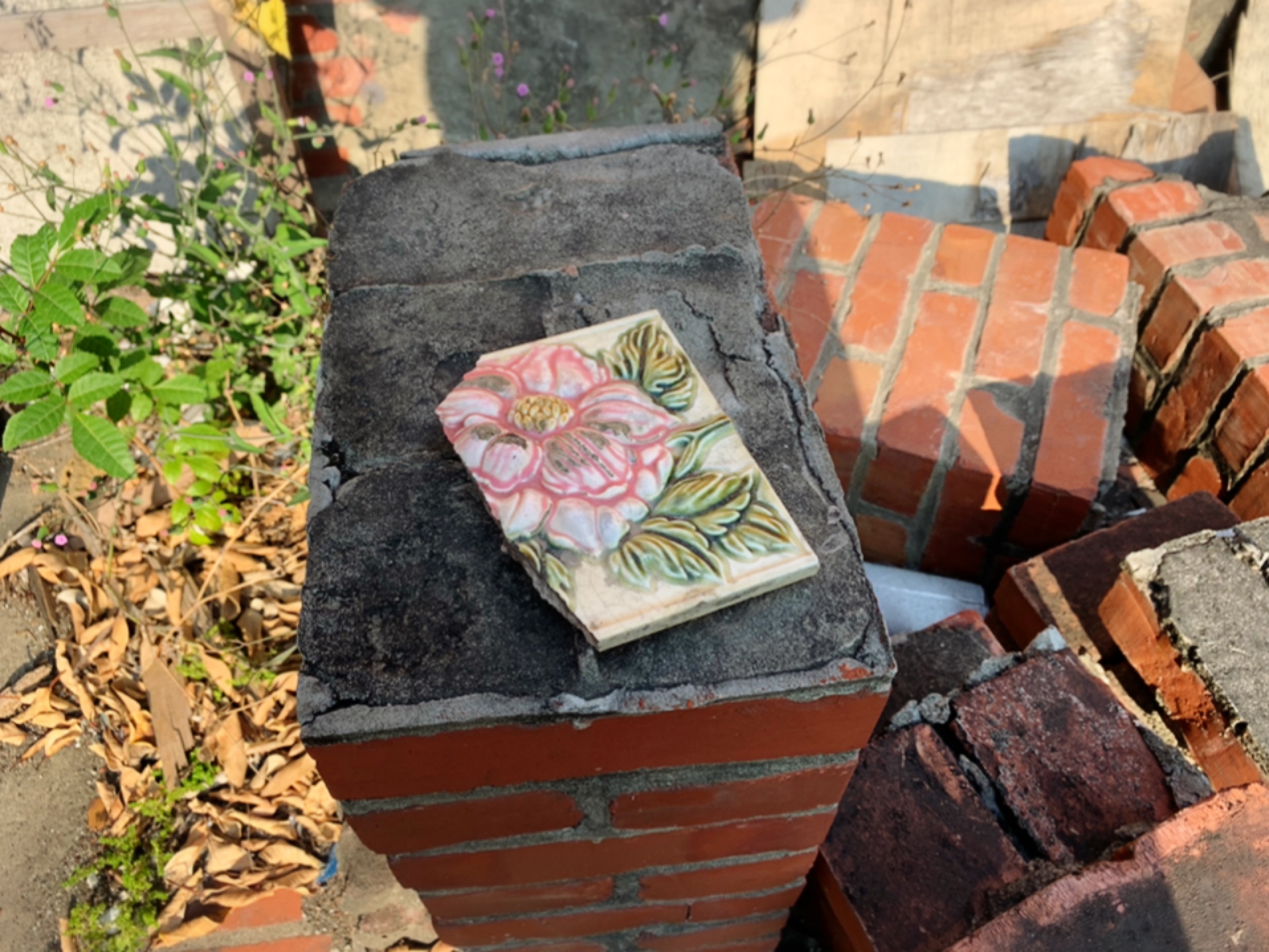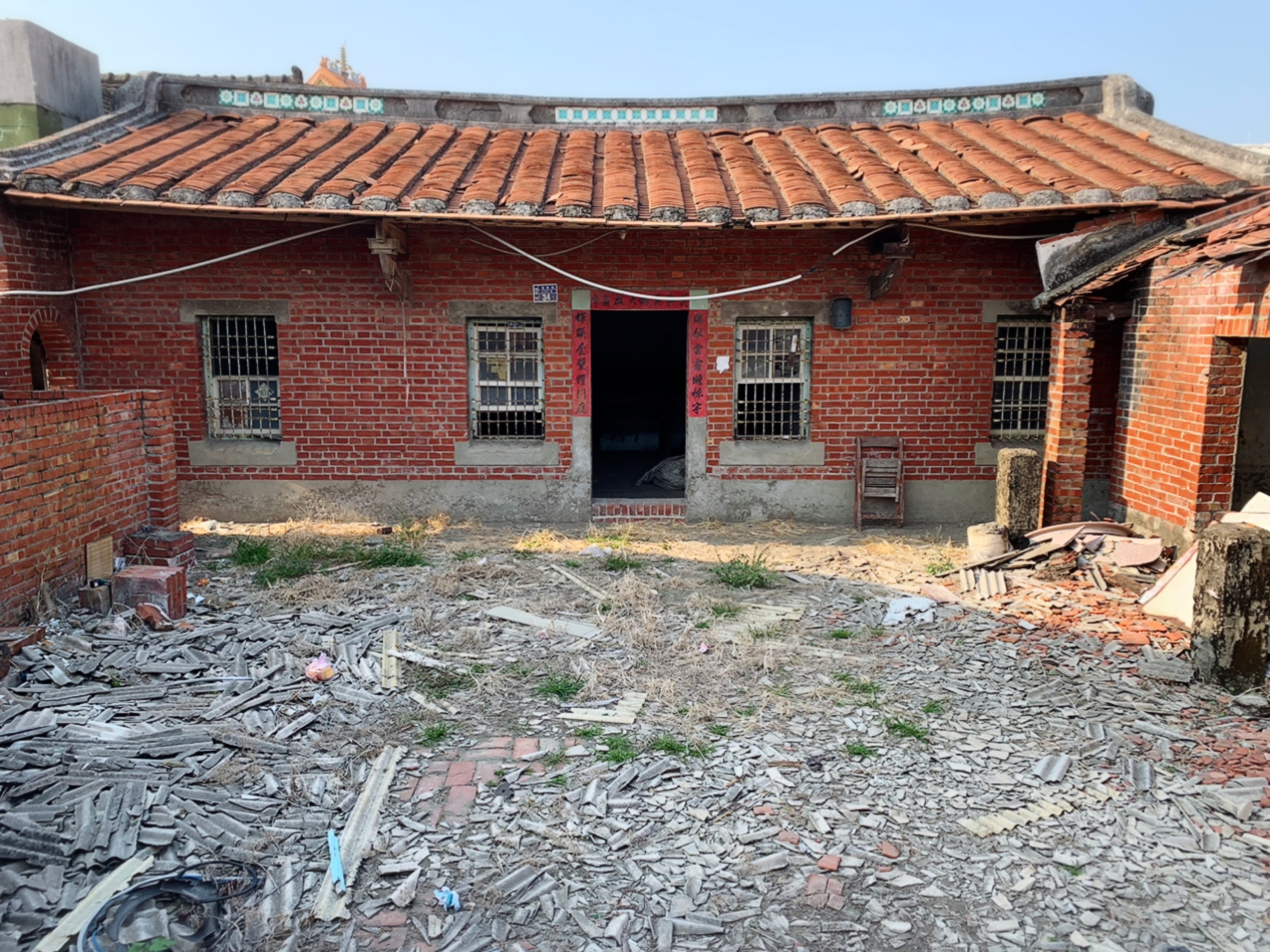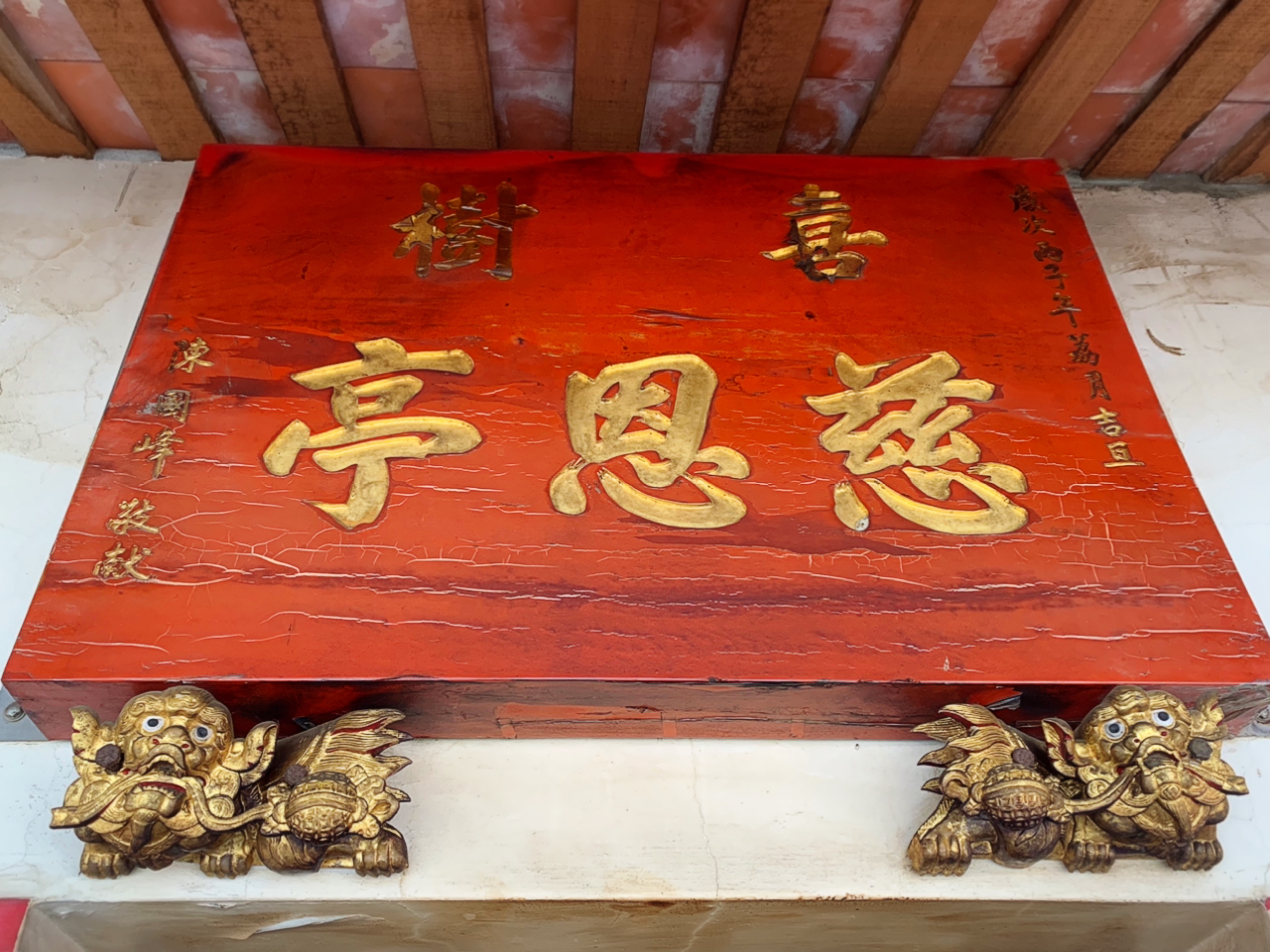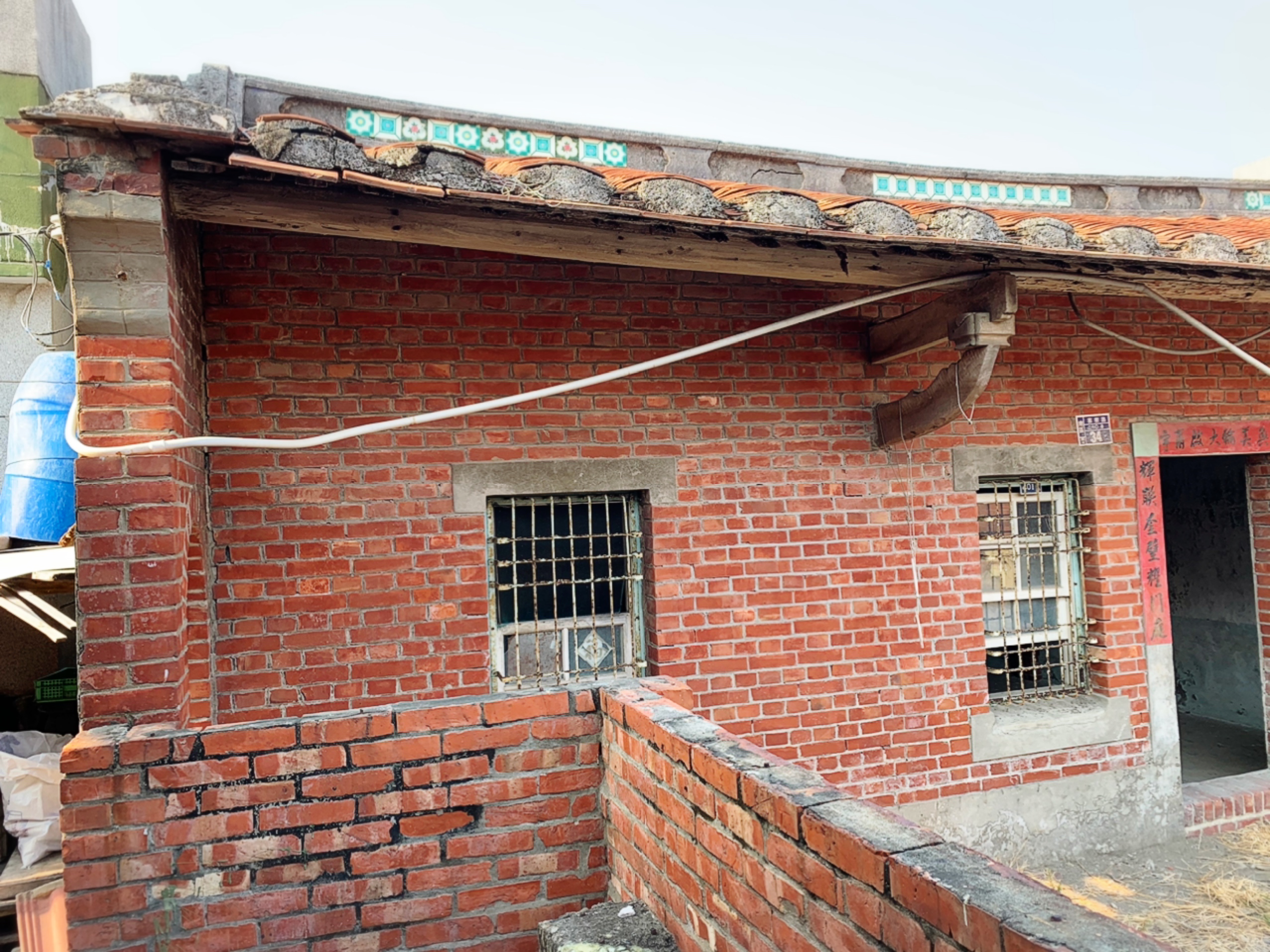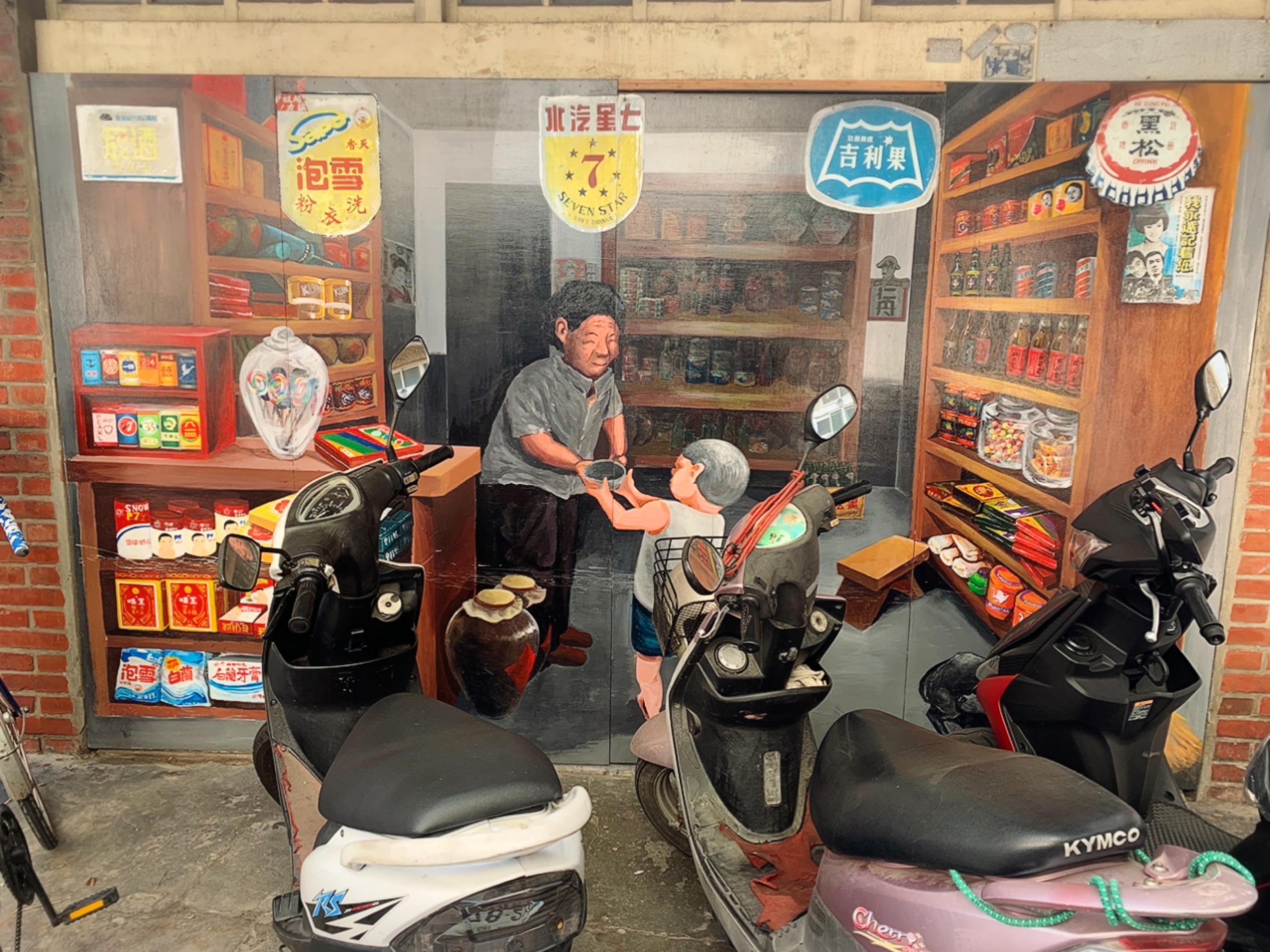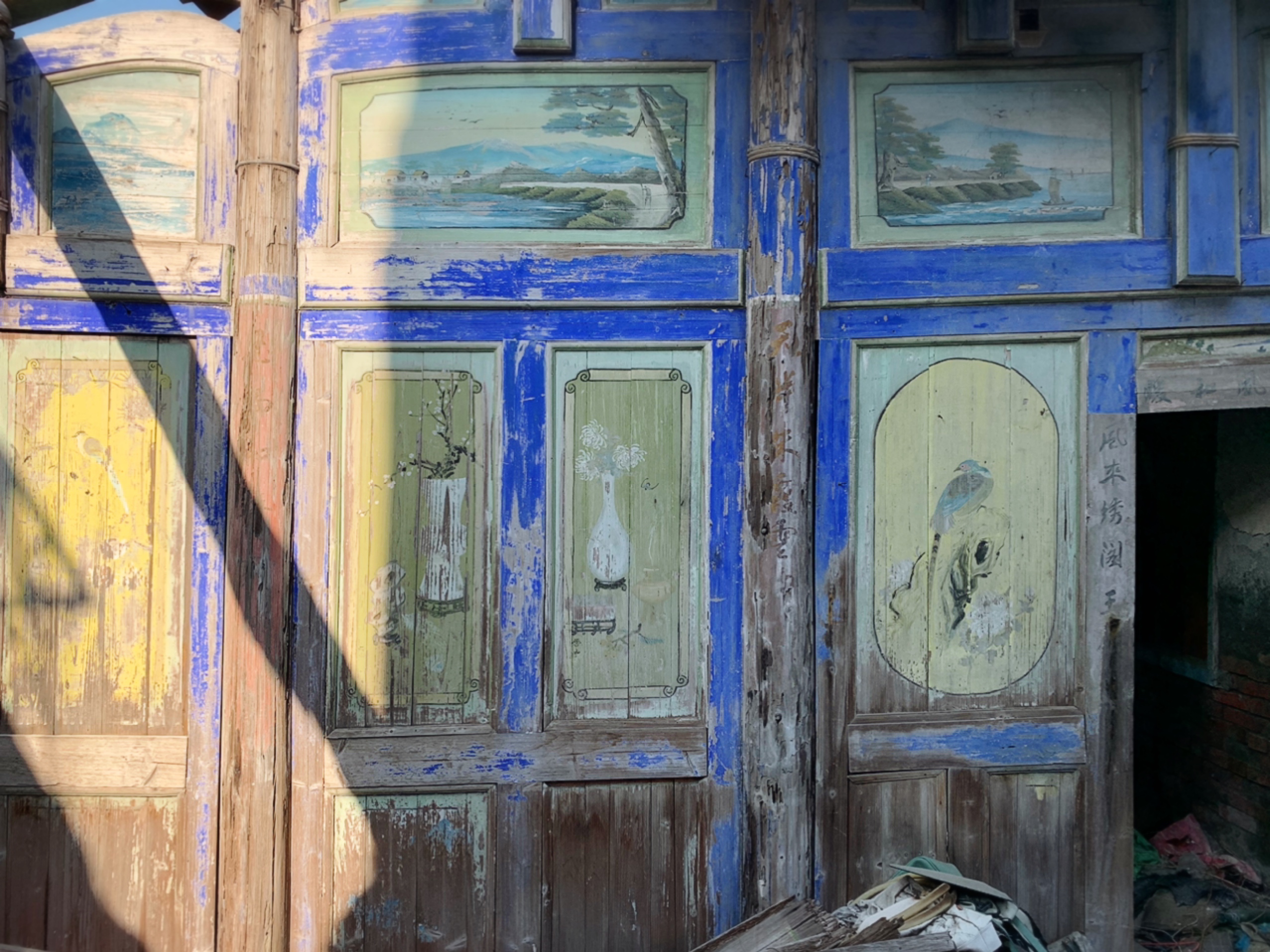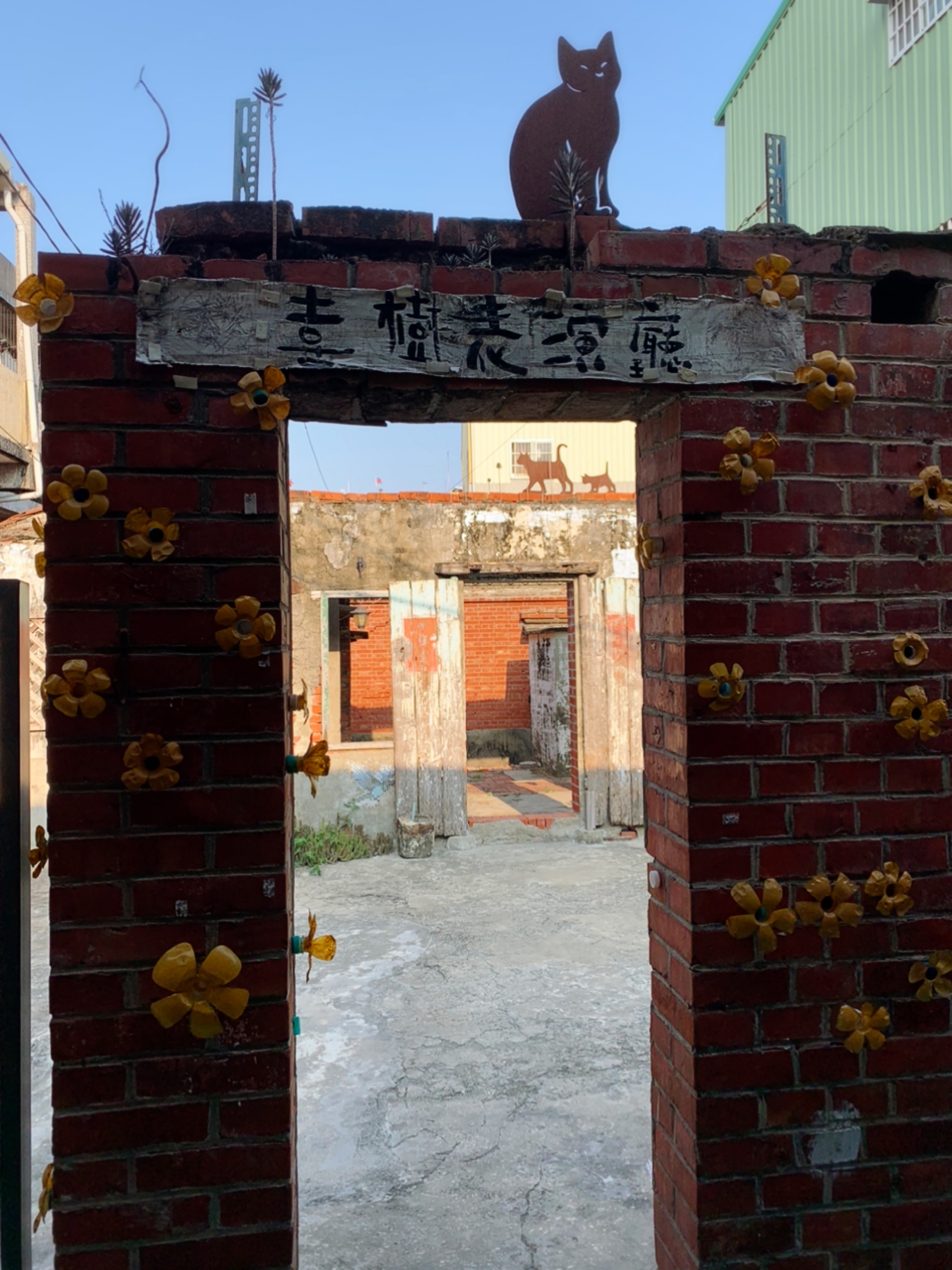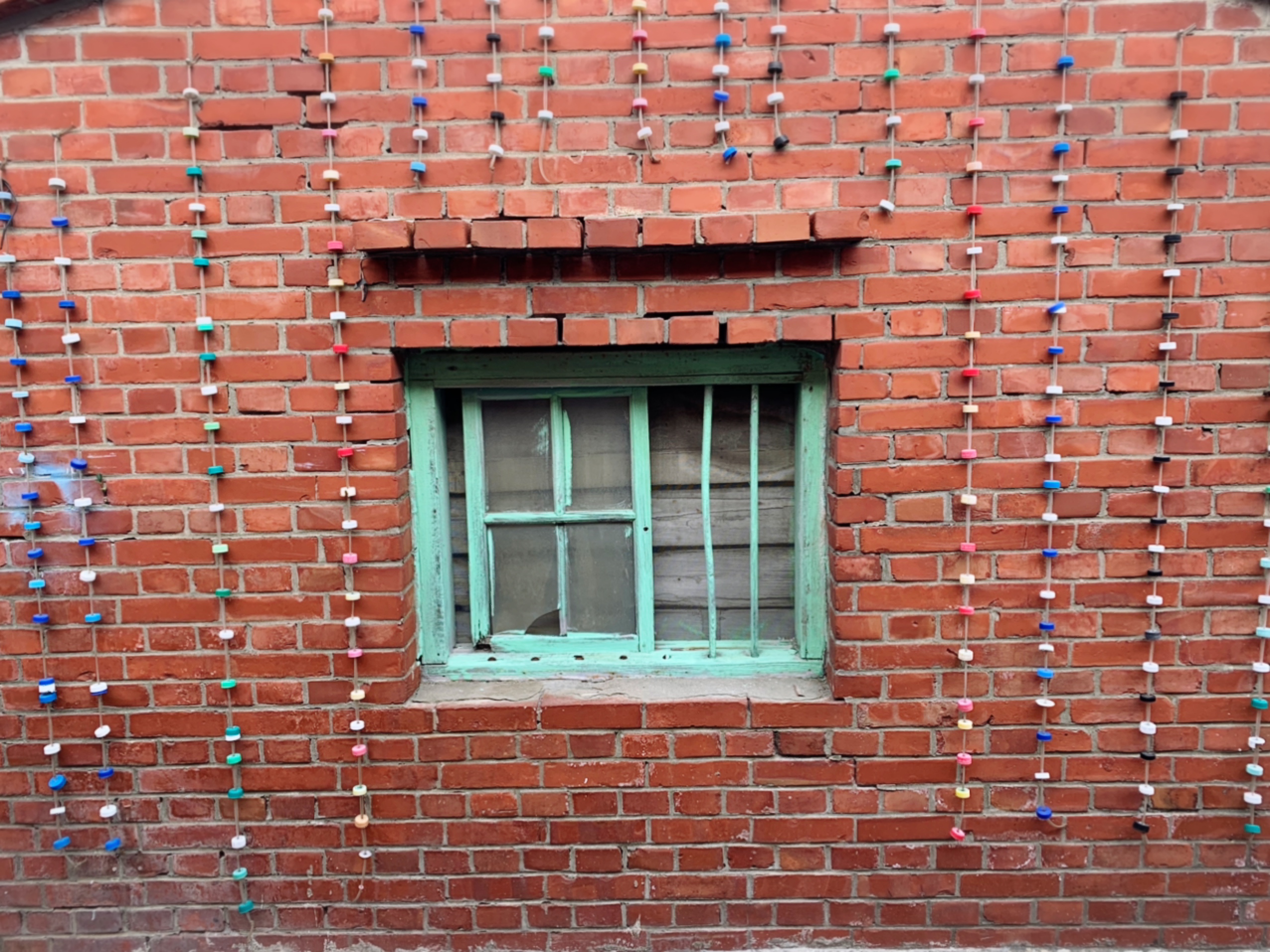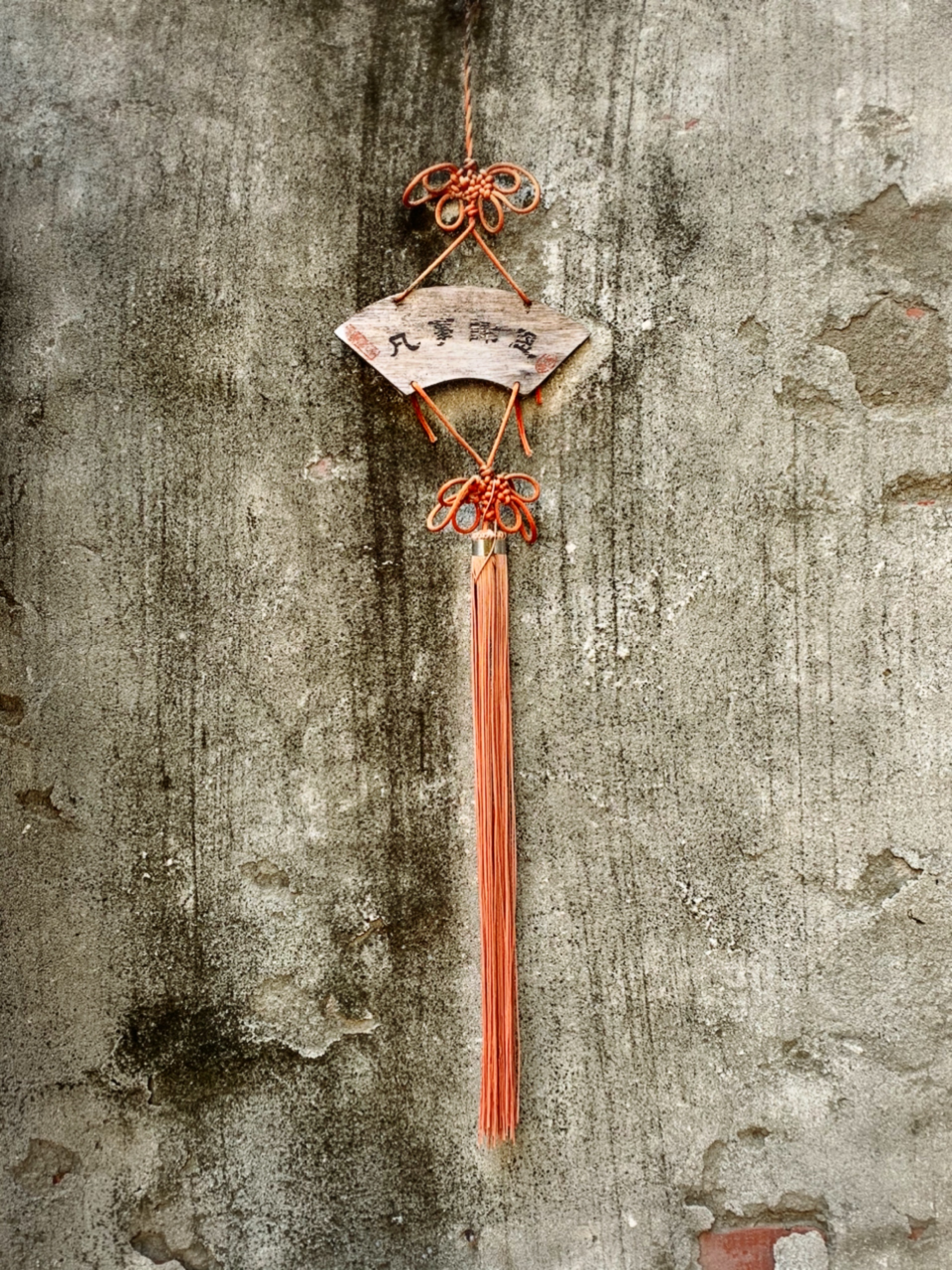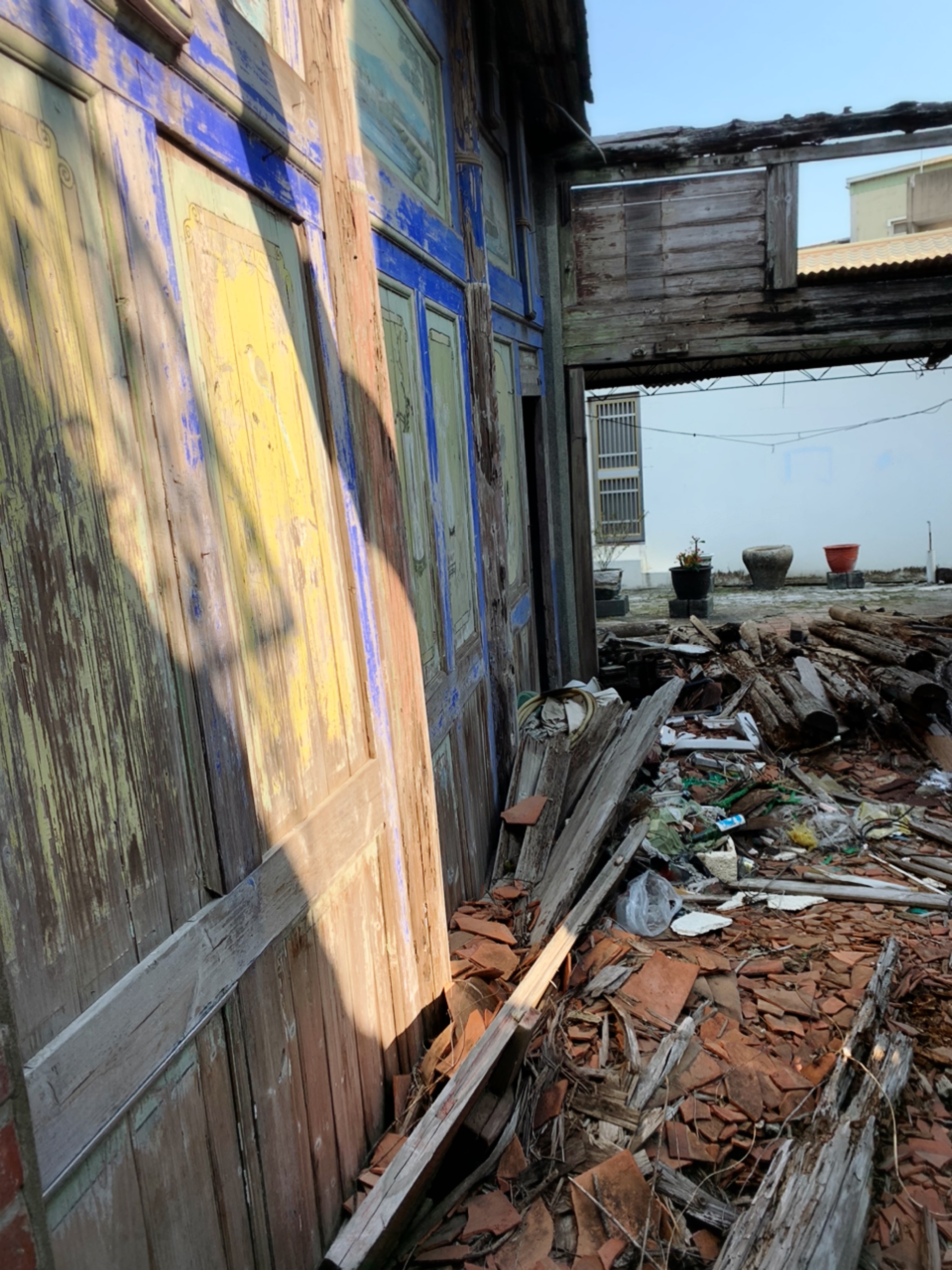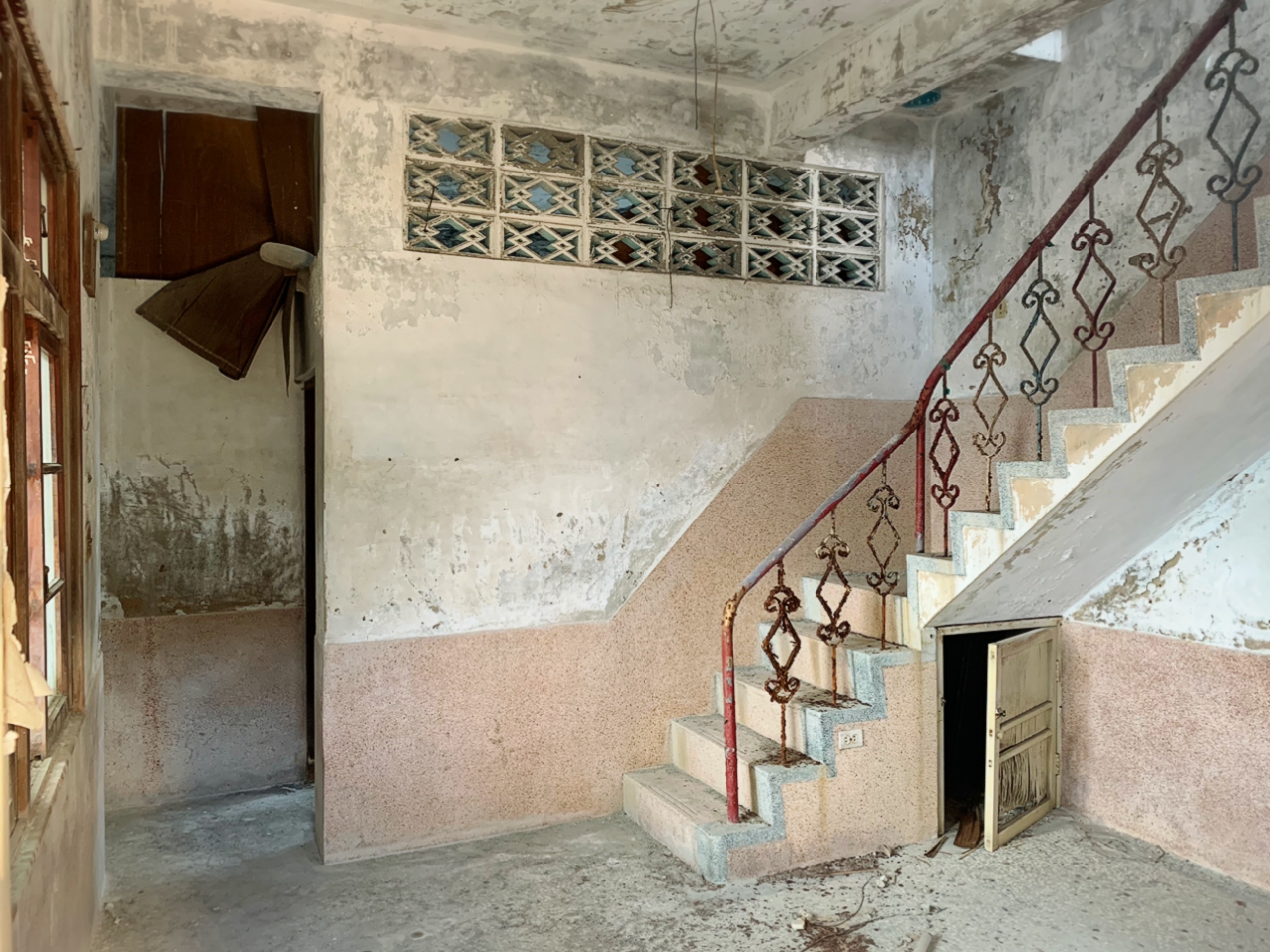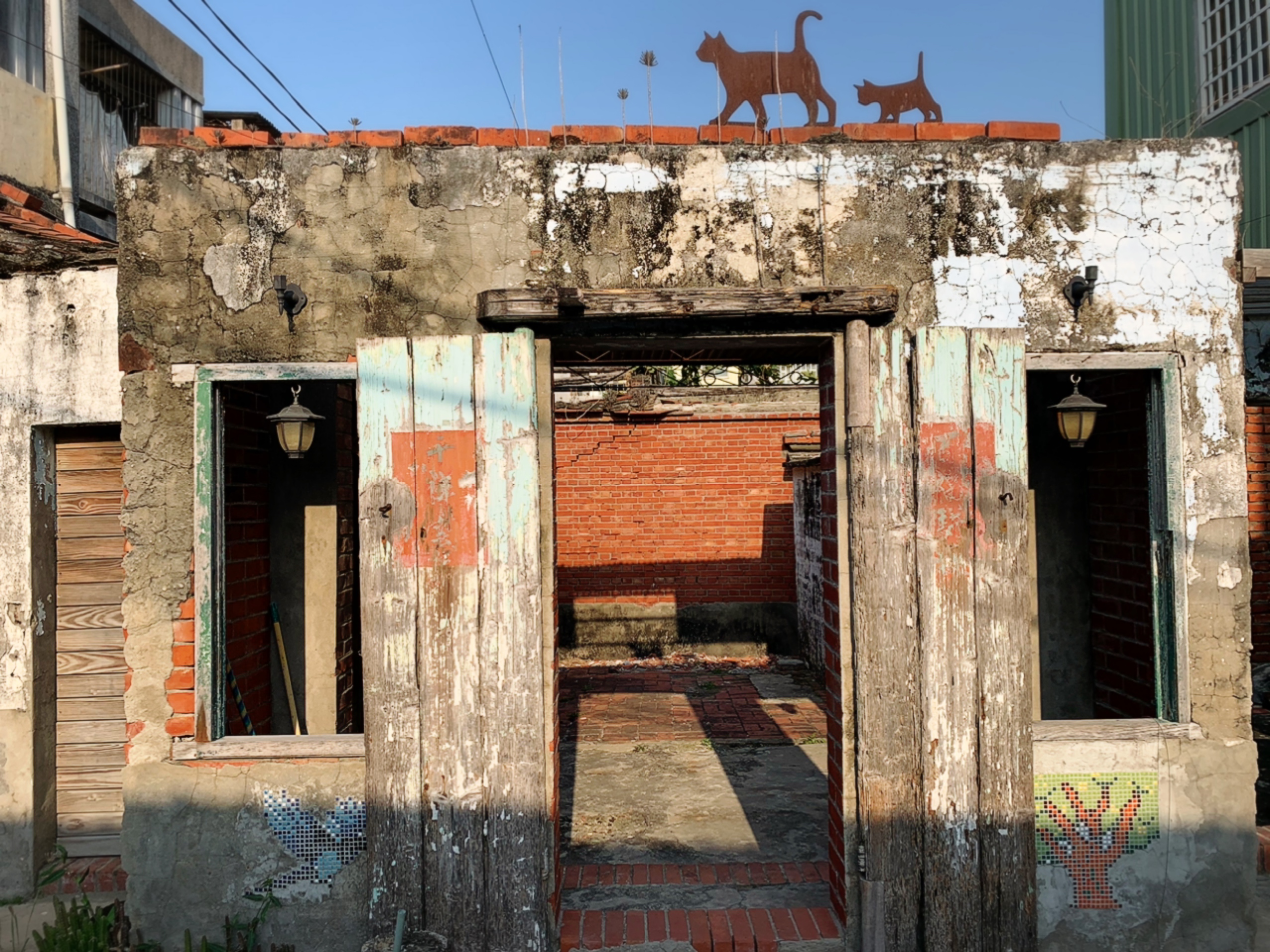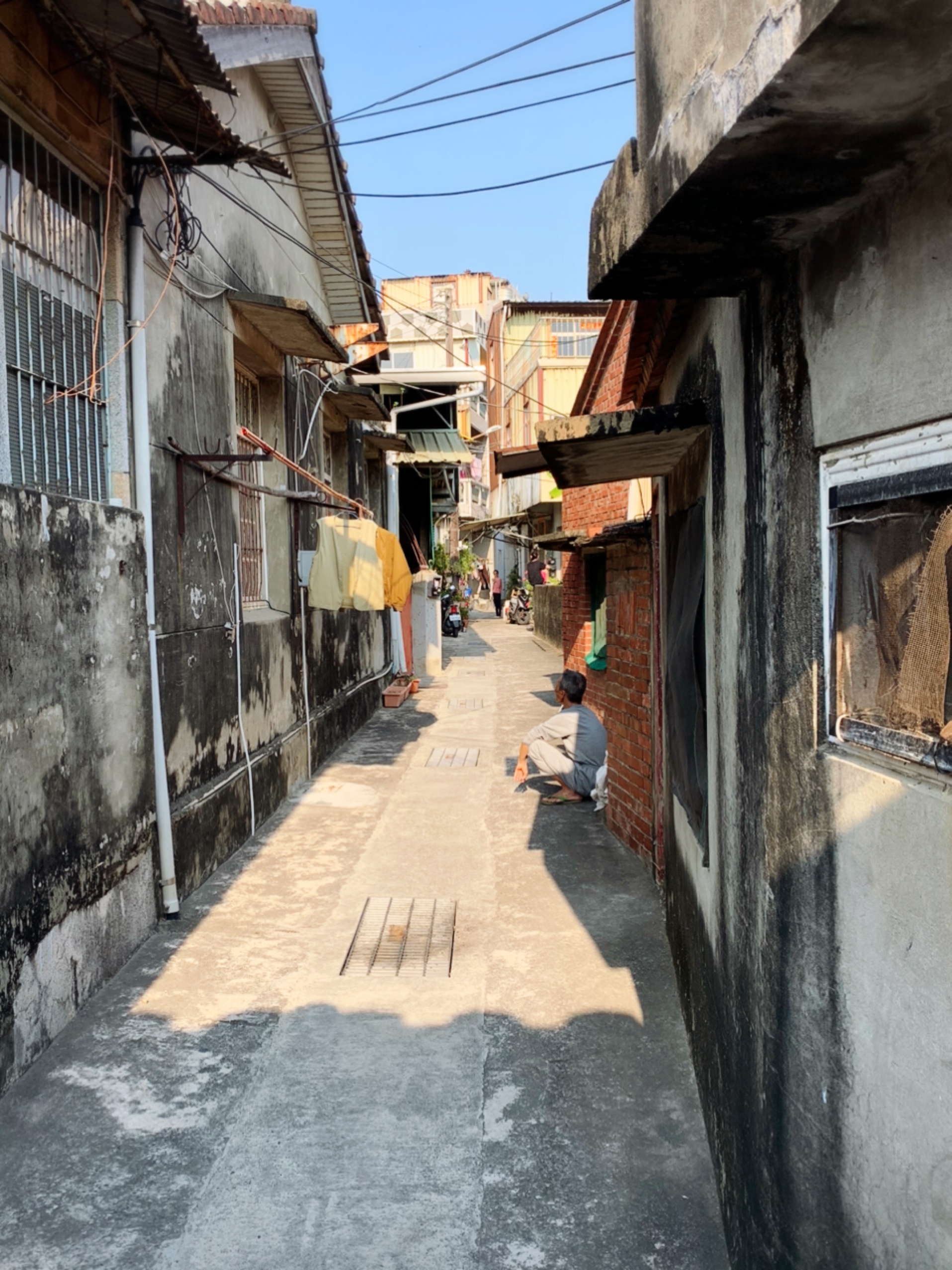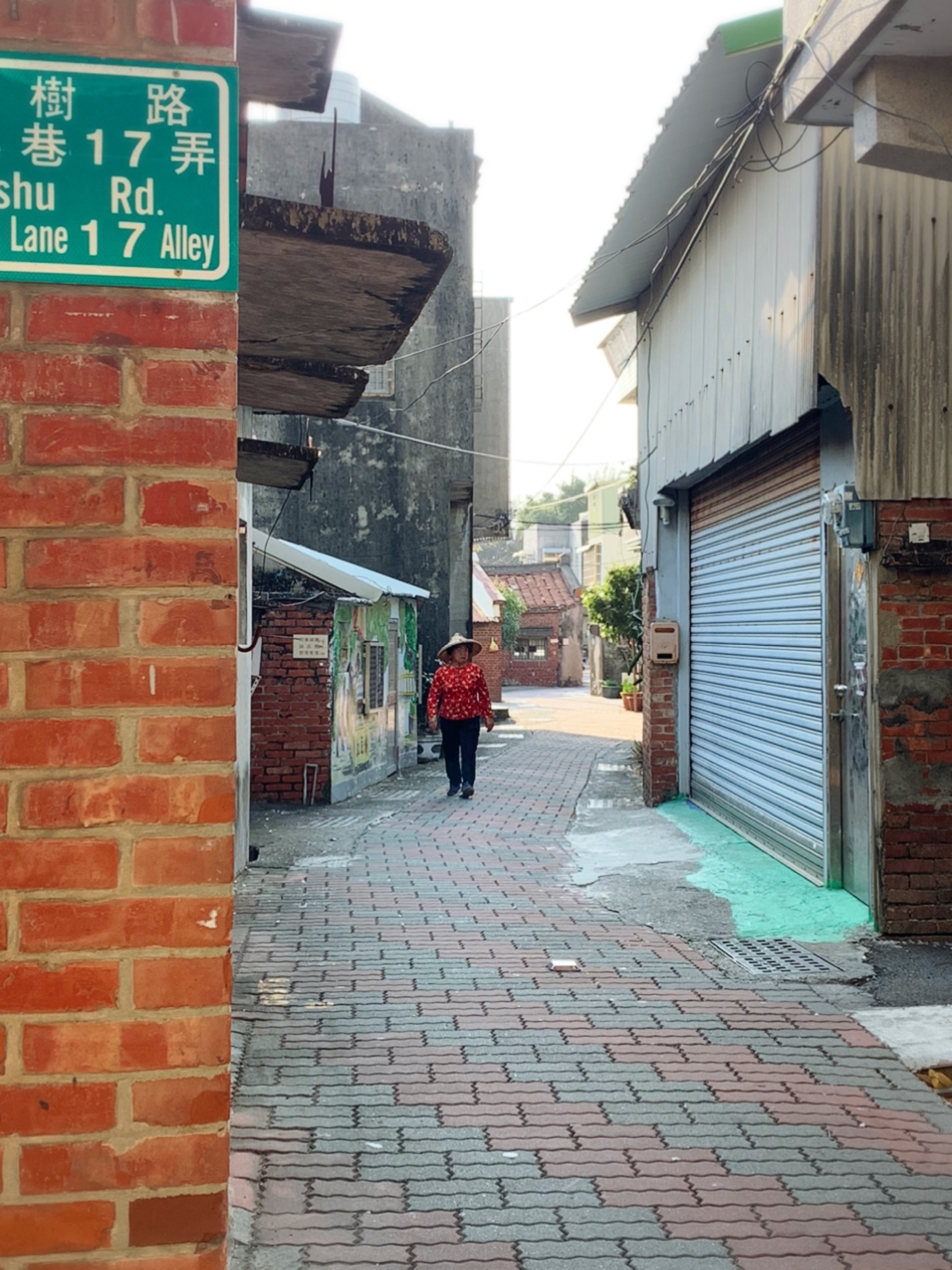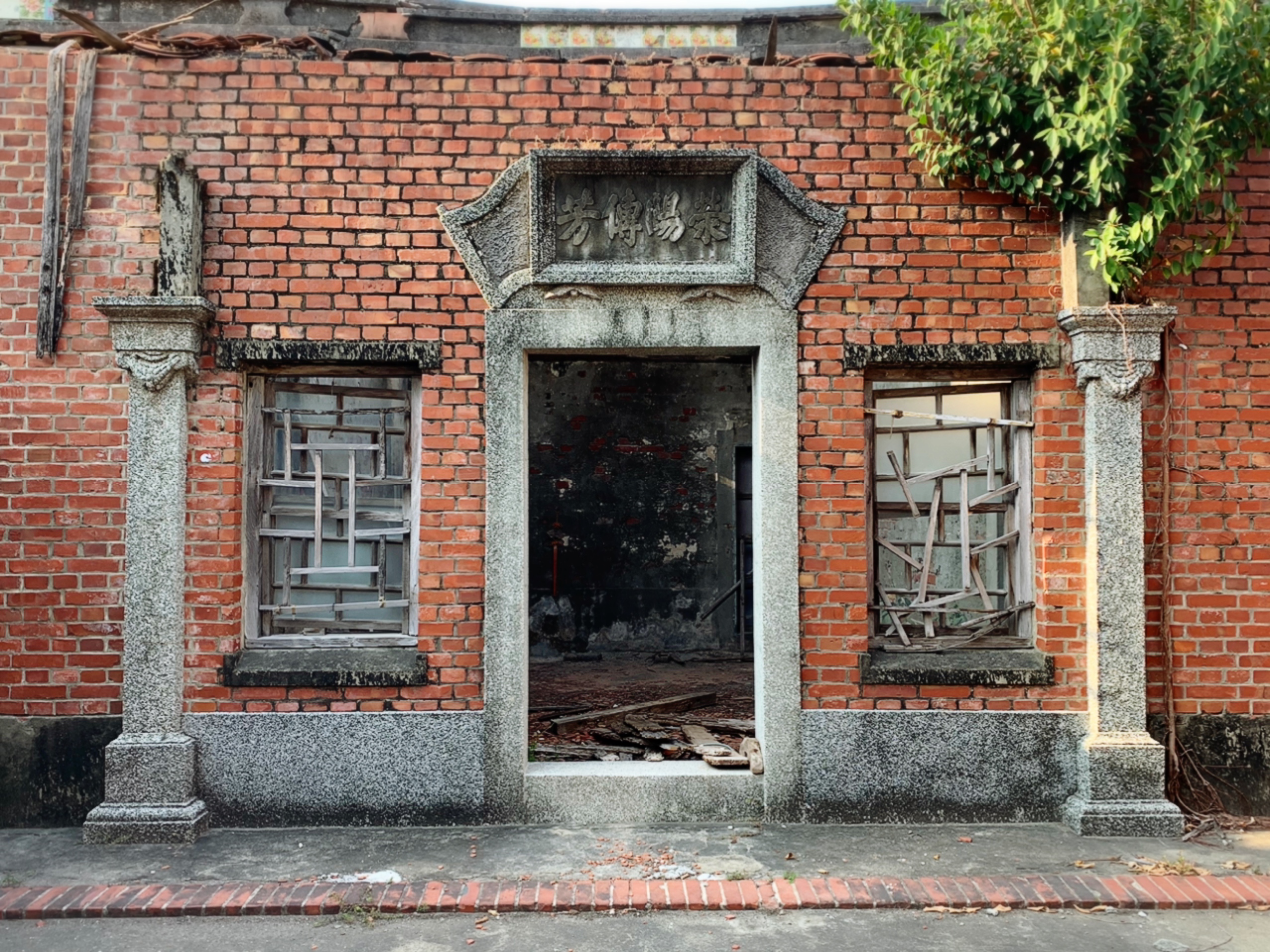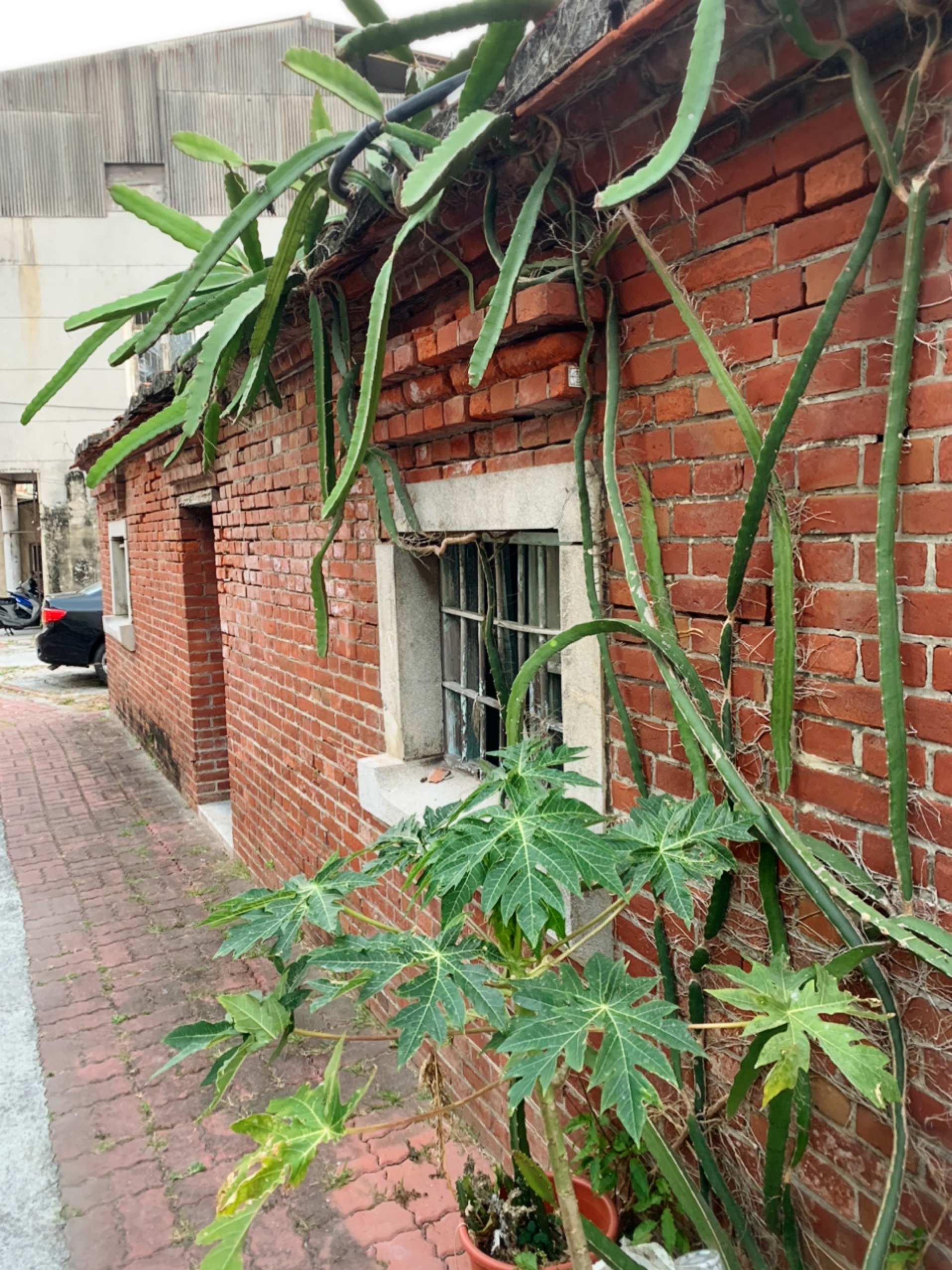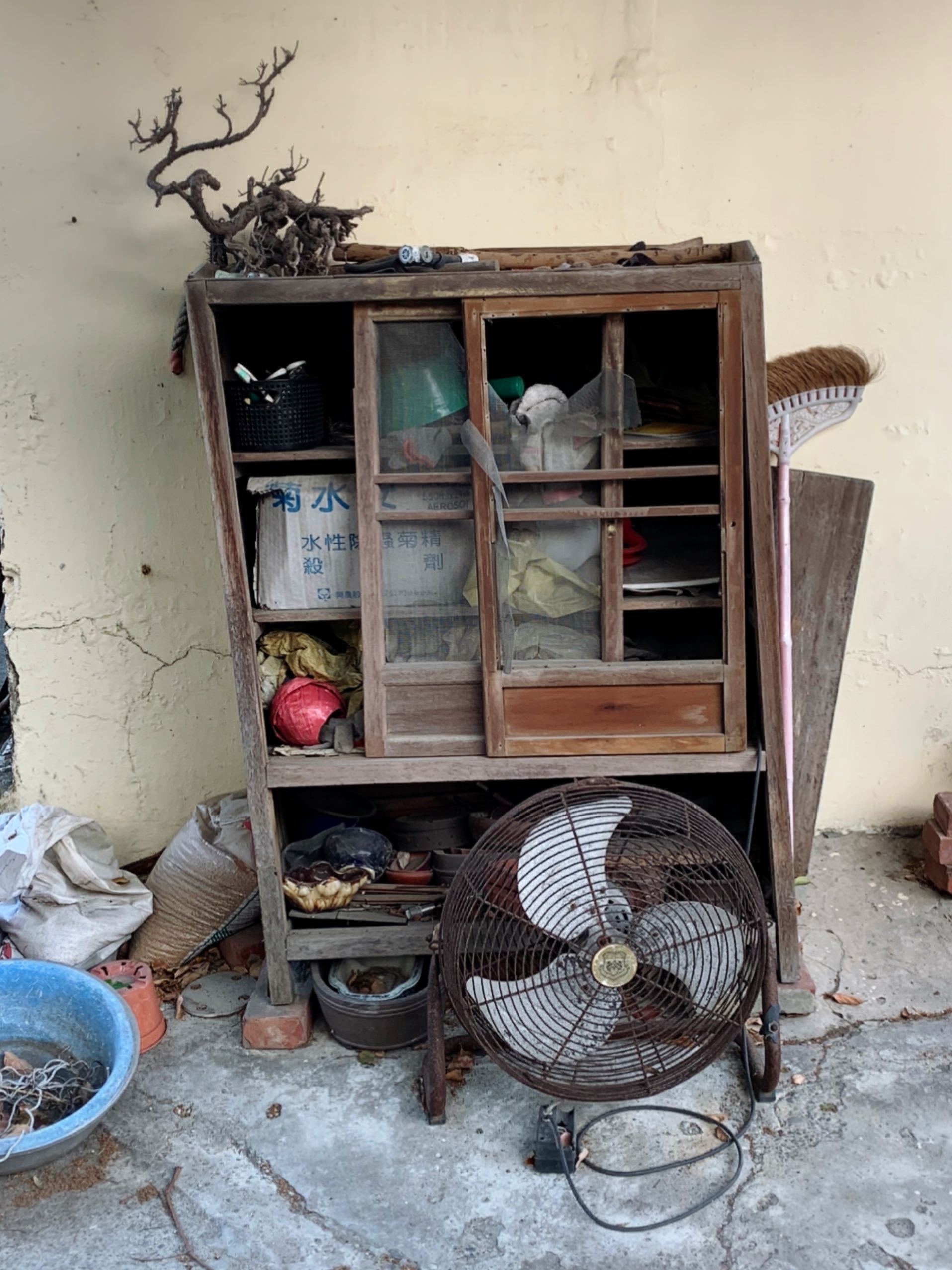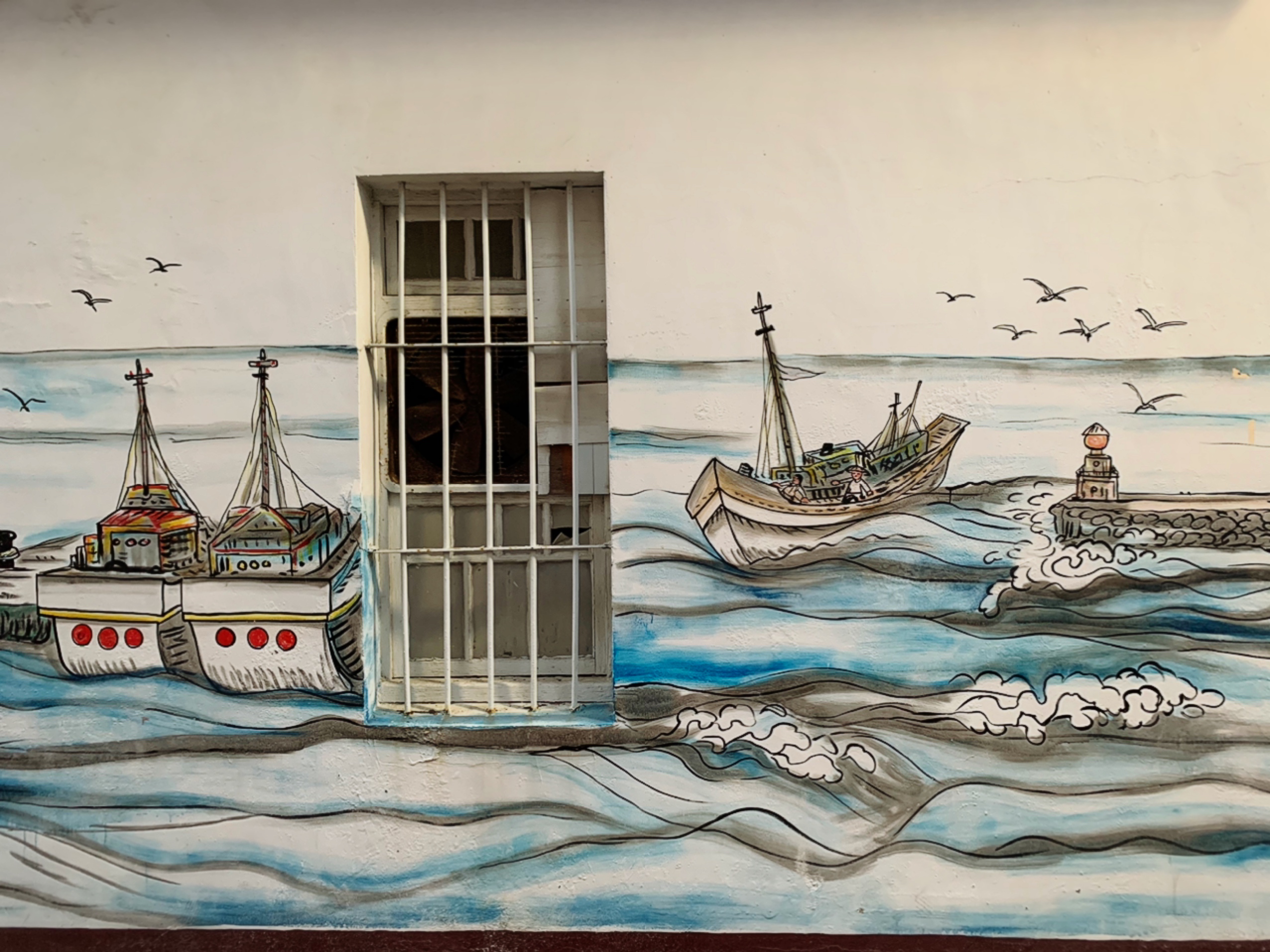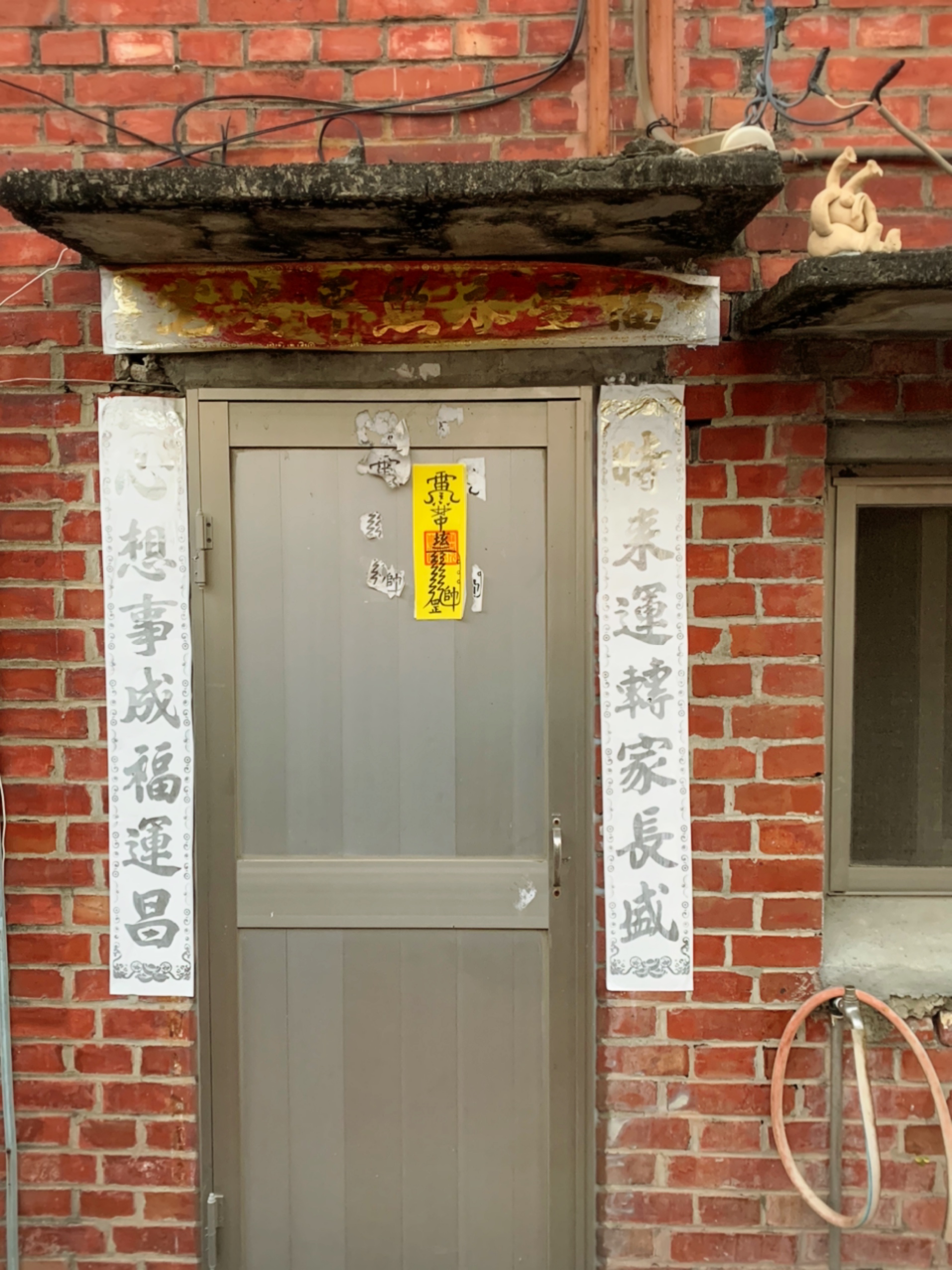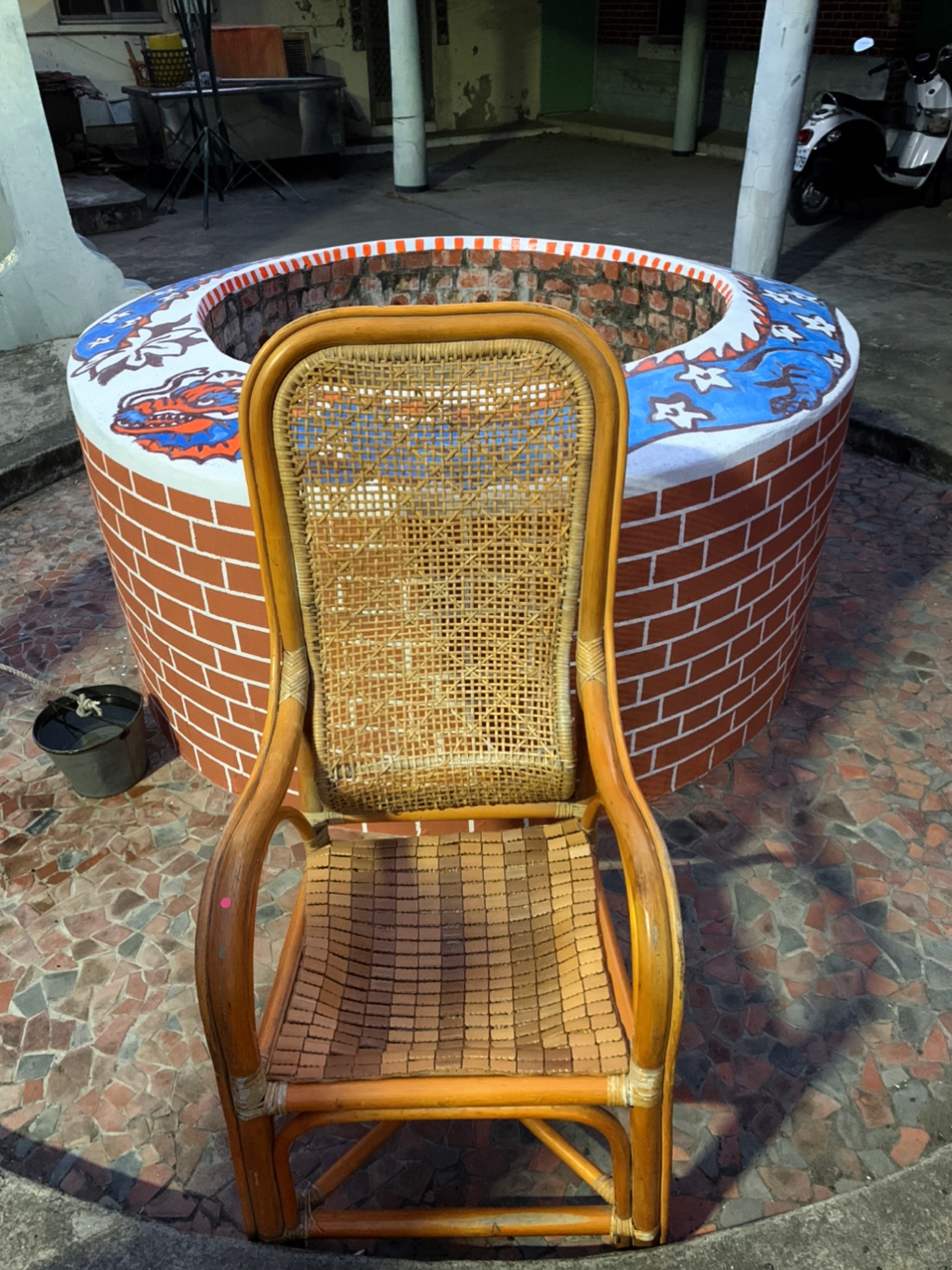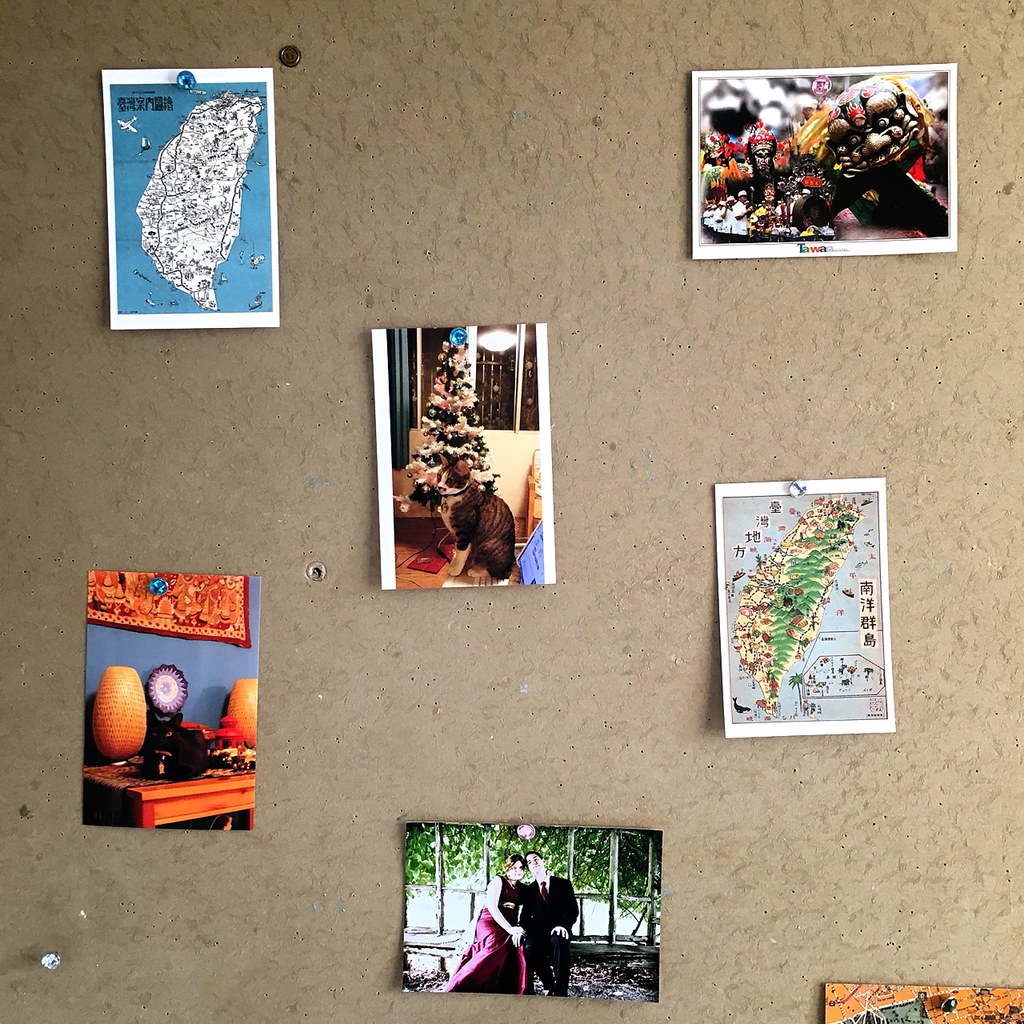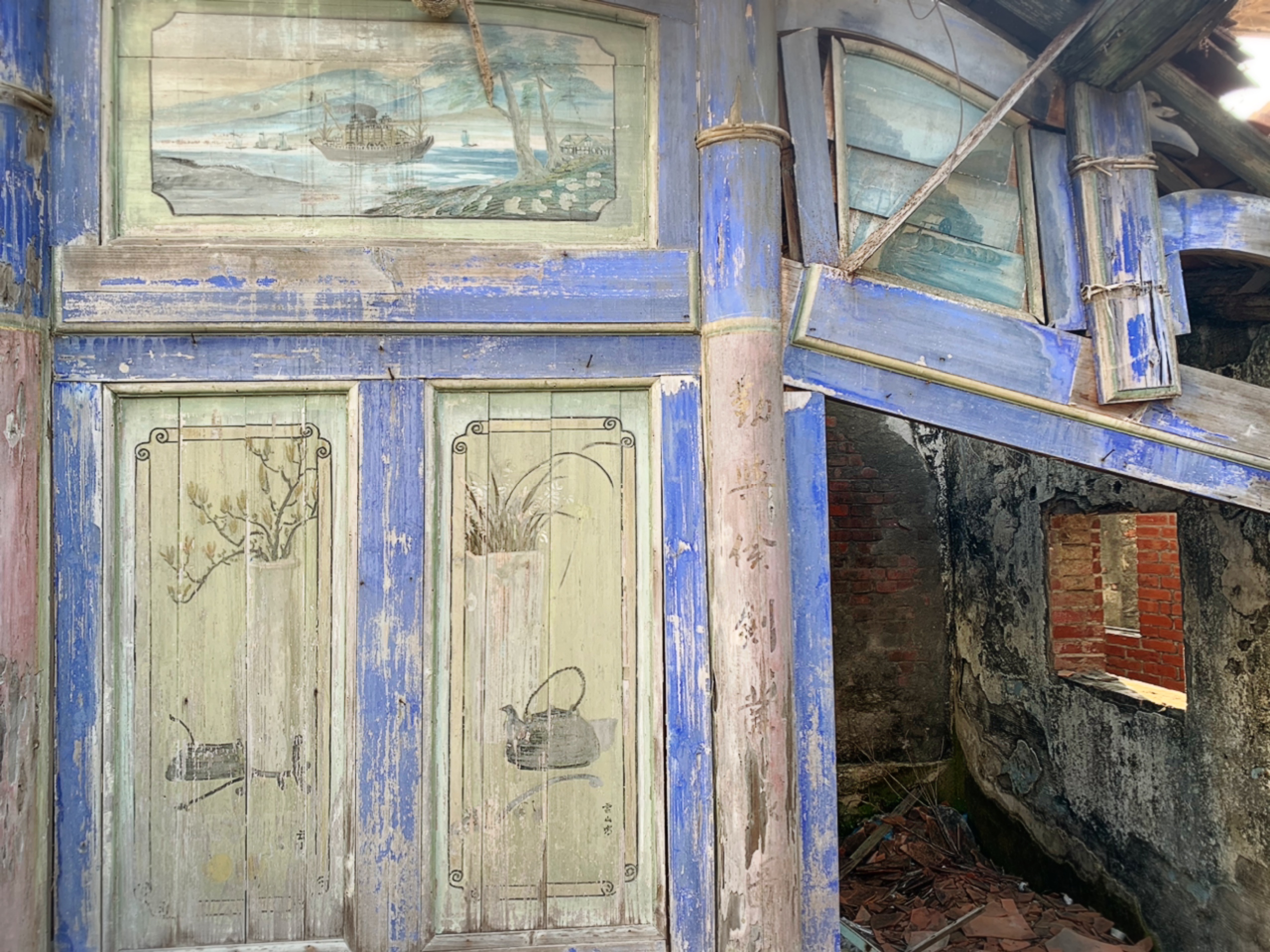
I'm going to present this post more as a photo essay, because I don't have much specifically to say about each picture. But, I wanted to write about these older areas of southern Tainan that are often overlooked: Xishu Old Street 喜樹老街 and nearby Sikunshen 四鯤鯓. Both of these areas are old settlements, and most likely fishing villages given their proximity to the coast.
It's worth noting that thanks to a highway and a seawall, you can't actually see the ocean from either now, but it is there. Either of these might make a fine diversion or extra stop on a day trip to the beach down here. I haven't actually been to the beach, so I can't say if it's any good.
For awhile, local governments in Taiwan were keen to promote "old streets" -- streets mostly full of Japanese-era architecture that either once served as the downtown or high street of a city, or were otherwise left intact. You can find them all over the place, with the most famous examples being Daxi (Taoyuan County) and Sanxia (New Taipei). Others exist but none top the architecture of those two. They filled up with very similar businesses selling retro-style toys, balms and oils, wooden massage, backscratching and pressure-point implements, various sweet and savory snacks (preserved fruit is popular), food vendors and little souvenirs. Sprinkle in a few restaurants, snack vendors selling whatever the town is 'famous' for and perhaps a cafe, and you have a classic 'old street'. I've also explored some quieter ones, such as Hukou Old Street in Hsinchu County, which is quite difficult to get to.
People still go to these, and I don't mind popping through if I'm in the town; they can be nice if they're not too crowded.
Some old streets, however, don't quite make it: take Xishu Old Street (喜樹老街) outside Tainan city, for example. This area is very close to the Gold Coast beach area, and not conveniently located for transport. There is a parking lot, and the Bus #1 comes down here from central Tainan, but it doesn't come very often. The bus stop is on Xishu Road (喜樹路). Just outside the old village area there are some convenience stores, and Google says there are restaurants around, though none were open when we passed through.
What's interesting about this area isn't how bustling it is, because it isn't. Rather, it's more like an atmospheric residential backstreet which reveal a few past attempts at being renovated for tourism, surrounded by a nearly abandoned village of crumbling brick houses.
In the photos you'll see quite a few original Majolica tiles (meaning these houses are probably from the Japanese era, as the tiles became popular in Taiwan after they started coming in from Japan) and some original painting, all of it fading and rotting in the elements. While I'd love to see these houses preserved or renovated just as they are, the fact is most of them are so far gone that they're unlivable now. So, the next best thing would be to try and rescue the art to be found here, through in situ preservation if possible -- but perhaps dismantling if not. While the look of beautifully painted wooden walls deteriorating over the decades is poetic and melancholy, I'd rather see this work saved somehow.
Notable points include an area that seems to have been a renovated performance space (though there was nothing going on while we were there), a few abandoned historic houses such as the 鄭家古厝 (the Zheng family home), and what seems to have been the original purveyor of those bags and purses in Taiwan that are shaped and printed to look exactly like fish (though they were not open when we visited). There is also a lot of cat-themed decoration: according to one signboard, the area used to be full of street cats. They'd played an important role in controlling the mouse population when people lived here. Then over time the people mostly left, but the cats stayed. Then, eventually, the cats left too.
A very short drive north along the coast, you'll find Sikunshen (四鯤鯓). This village is a bit more, well...inhabited than Xishu, and very atmospheric to walk around. The town still seems to have a lot of connections to the shellfish business, especially oysters, and as it's still inhabited, the cats are still around.
There's not a lot to do, but it's fairly easy to park at Longshan Temple (龍山寺), or the Bus #6 will take you here. It's not even that hard to transfer between the #1 and the #6 -- you have to do a little backtracking, but it's possible -- if you've decided to spend the day in the area, though it will take longer than driving.
Sikunshen has more crumbling brick architecture, a few interestingly-decorated renovated houses, and a very large old well. If any local aunties or uncles are around, they might fetch you a bucket to draw water from it, if you want.
The signboard by the well notes that there were actually two large wells in this area, one on each side of Longshan Temple. Because of this, they were considered the 'eyes' of the dragon-like sea creature -- hence this well's name: 龍目 (Longmu or Dragon Eyes). The water here was apparently especially sweet ad plentiful, though frankly all signs next to historic well say that, trust me. Nobody's ever like "yeah this was our old well, the water was gross and tasted bad". It's always something more like "we dubbed this well 'Eternal Sweet Water' for the sustenance it gave the community!"
In any case, municipal water was installed in 1968.
The name of the village is notable, as well. If you read my post on Luermen (鹿耳門), you'll know that much of what is now Tainan used to be a wide, shallow bay called the Taijiang Inland Sea. Cordoning this bay off from the Taiwan Strait were a series of sandbars that peeked out of the water at regular intervals which looked, taken together, like humps on the back of a massive sea monster or whale (鯤鯓), which is how the area gets its name. Although the geography has changed quite a bit in the past few centuries, these bits of the sea creature's back were numbered. Sikunshen was, of course, the fourth one.
Anyway, enough of me talking: enjoy some photos.
Xishu Old Street
